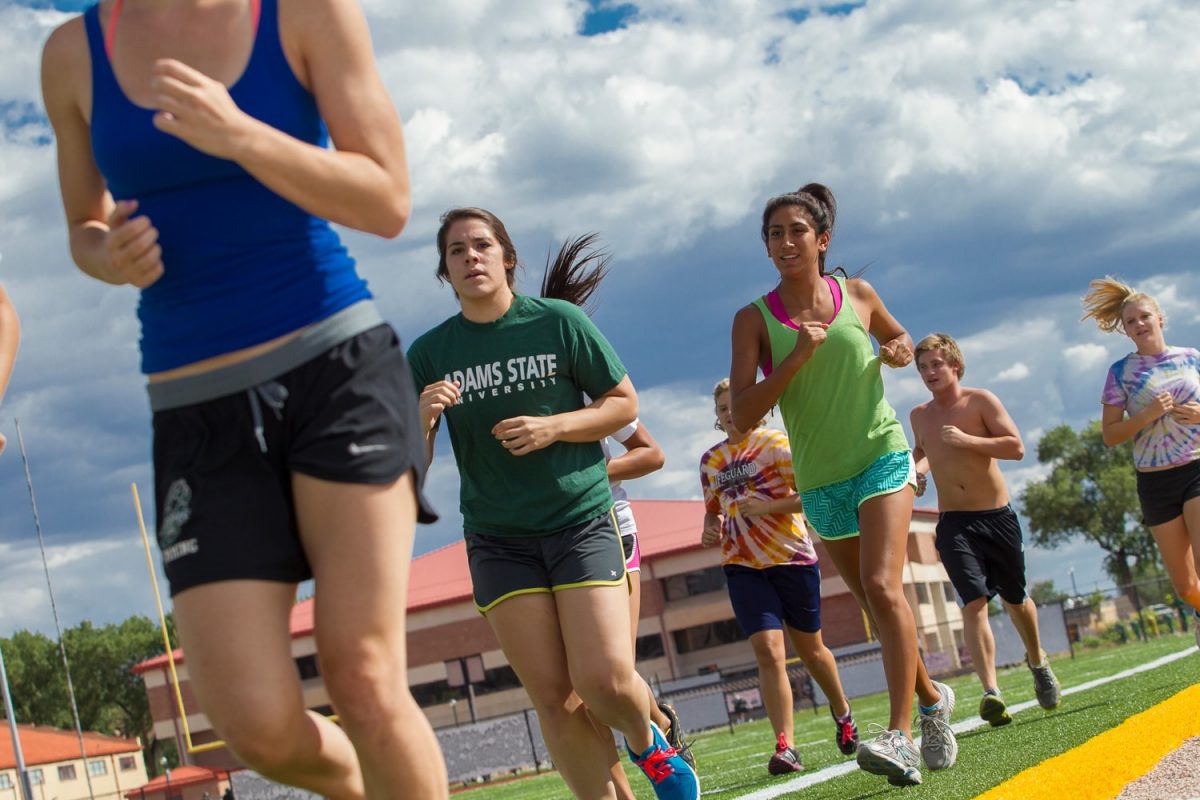The following student learning outcomes specify the knowledge, skills, and abilities that students majoring in Kinesiology are expected to develop as a result of their curricular and co-curricular experiences in Kinesiology. These SLOs directly align with the institutional learning outcomes, Adams Outcomes.
Through the multi-disciplinary curricula within Kinesiology, students will develop…
Area I: Knowledge of Human Cultures and the Physical and Natural World
Through study in the areas of Exercise Science, Sport Management, K-12 Physical Education, Sport Psychology, and other sport, health, wellness, and fitness related academic foci.
Area II: Intellectual and Practical Skills, including
- Critical thinking
Critical thinking is a habit of mind characterized by the comprehensive exploration of issues, ideas, artifacts, and events before accepting or formulating an opinion or conclusion
- Written communication
Written communication is the development and expression of ideas in writing. Written communication involves learning to work in many genres and styles. It can involve working with many different writing technologies, and mixing texts, data, and images. Written communication abilities develop through iterative experiences across the curriculum.
- Oral communication
Oral communication is a prepared, purposeful presentation designed to increase knowledge, to foster understanding, or to promote change in the listeners’ attitudes, values, beliefs, or behavior.
- Teamwork
Teamwork is behaviors under the control of individual team members (effort they put into team tasks, their manner of interacting with others on team, and the quantity and quality of contributions they make to team discussions.)
Practiced extensively, across the Kinesiology curricula, in the context of progressively more challenging problems, projects, and standards for performance.
Area III: Personal and Social Responsibility
a. Foundations and skills for lifelong learning
- Lifelong learning is “all purposeful learning activity, undertaken on an ongoing basis with the aim of improving knowledge, skills and competence”. An endeavor of higher education is to prepare students to be this type of learner by developing specific dispositions and skills described in this rubric while in school. (From The European Commission. 2000)
Area IV: Integrative and Applied Learning, Including
a. Synthesis and advanced accomplishment across specialized studies
- Integrative learning is an understanding and a disposition that a student builds across the curriculum and co-curriculum, from making simple connections among ideas and experiences to synthesizing and transferring learning to new, complex situations within and beyond the campus
Demonstrated through the application of knowledge, skills, and responsibilities to new and familiar settings and through addressing complex problems in Kinesiology-related areas.
Kinesiology Core Learning Outcomes
- Consistently exhibit professionalism (personal responsibility, disposition of engagement, effort, initiative, helping and caring)
- Effectively develop and apply health and physical activity principles
- Recognize and incorporate individual differences and diversity in all programming.
Program Specific Learning Outcomes
Exercise Science & Sport and Exercise Studies:
- Evaluate health, performance and fitness levels to develop physical activity and exercise programs.
- Prescribe appropriate physical activity and exercise, based on assessments.
- Obtain professional certification and/or be accepted to a graduate program upon completion of program.
Sport & Recreation Management:
- Critically analyze business and sport management concept and theory across a spectrum of sport, health, fitness and physical activity settings.
- Integrate risk management principles and safety practices.
- Choose ethical courses of action in decision making.
- Manage risk in human performance and ensure safety [of clients]



